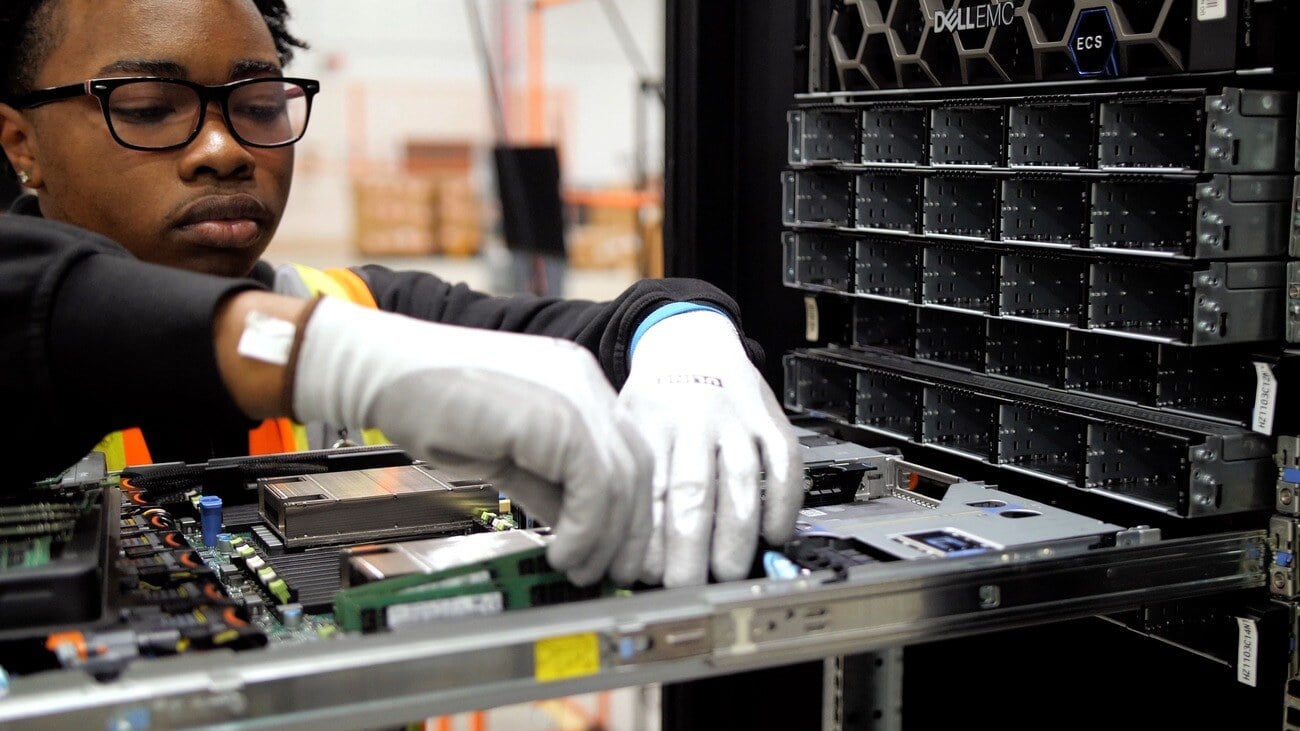As the climate crisis escalates, major corporations are taking significant steps towards a net-zero carbon future, with over 1,000 industry giants like Apple, Microsoft, and Unilever committing to net-zero targets by 2023.
Information Technology Asset Disposition (ITAD) plays a crucial role in this endeavour by managing IT assets responsibly, thereby reducing Scope 3 emissions and fostering a circular economy. The European Union’s Corporate Sustainability Reporting Directive (CSRD) further mandates comprehensive sustainability disclosures, driving companies to adopt transparent reporting practices. This regulatory and voluntary shift underscores a transformative move toward sustainable operations.
The environmental and social impacts of technology production are significant, with the production phase of electronics being highly emissions-intensive and contributing to global environmental issues such as ecosystem degradation, resource scarcity, and climate change. For instance, the manufacturing of a typical laptop can account for around 85% of its total embodied emissions. Additionally, the extraction of raw materials often involves human rights violations and hazardous conditions, particularly in artisanal mining. Mismanagement of e-waste further exacerbates these issues, with only 22% of the 62 billion kilograms of e-waste generated annually being formally recycled.
The circular economy presents a transformative approach to tackling these challenges by focusing on extending product lifecycles through reuse, repair, and recycling, which can significantly reduce carbon emissions and resource extraction. For example, prolonging the use of a laptop can result in approximately 54 kilograms of embodied carbon savings. Integrating IT circularity into corporate sustainability strategies not only mitigates environmental impact but also aligns with the United Nations Sustainable Development Goals (SDGs), promoting responsible consumption, reducing inequality, and addressing climate action.
Data Security is Paramount for Sustainable ITAD
Moreover, sustainable ITAD practices offer you substantial benefits beyond just reducing environmental impact. By securely decommissioning your IT equipment, you ensure that sensitive data is thoroughly erased, protecting your organization from potential data breaches. Additionally, by repurposing and recycling your IT assets, you can achieve significant cost savings, extending the lifecycle of your existing equipment and avoiding unnecessary purchases. These sustainable practices not only enhance your organization's reputation but also align with the growing expectations of customers and investors who prioritize ethical and environmentally responsible operations.
When you partner with SK Tes, you can make a significant impact on reducing the environmental footprint of electronic waste. Serving clients in over 100 countries and processing more than 6 million assets annually, we are dedicated to repurposing and recycling 1 billion kilograms of electronics by 2030. This ambitious goal reflects our commitment to creating a more sustainable future by minimizing e-waste and promoting responsible technology use. Through our comprehensive approach to extending asset lifecycles—via reuse, refurbishment, repair, and parts harvesting—you can significantly reduce your carbon footprint while optimizing the value and efficiency of your IT assets. As we continue to innovate and lead in electronic waste management, we are setting new standards for sustainability in the tech industry.
View our ITAD services and contact us about sustainable solutions.
For more insights into the role of ITAD in a Net-Zero Carbon Future, read our article in the latest Reverse Logistics Association (RLA) Magazine.
About the Author
Eric Ingebretsen currently serves as Chief Commercial Officer for SK Tes, previously known as TES, where he has board-level responsibility for SK Tes’ global sales and marketing efforts. This includes telling the SK Tes story to raise brand awareness, aligning teams to hit the company’s growth targets, and owning the overall health of SK Tes’ current revenue streams. He has a deep passion for harnessing the power of storytelling, delivering results, and developing his team.
Eric joined SK Tes in 2015; prior to SK Tes, he held various management positions in marketing and business development at SkyTel, Eaton Aerospace, Intechra, Arrow Electronics, and C Spire.


.png?width=178&height=178&name=TES%20_%20Eric%20Ingebretsen%20(white%20background).png)




